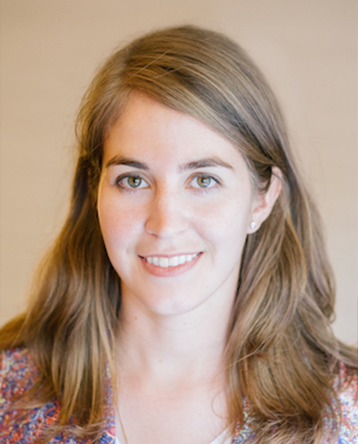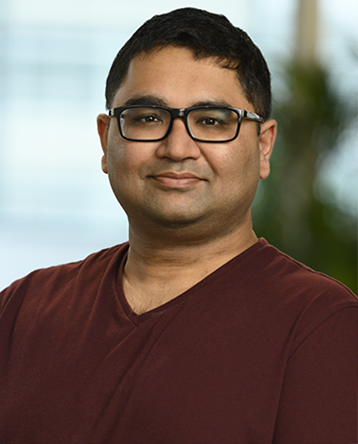
Alessandro Acquisti
Trustees Professor of Information Technology and Public Policy, Heinz College
Alessandro Acquisti is the Trustees Professor of Information Technology and Public Policy at the Heinz College, Carnegie Mellon University. His research combines economics, behavioral research, and data mining to investigate the role of privacy in a digital society. His studies have promoted the revival of the economics of privacy, advanced the application of behavioral economics to the understanding of consumer privacy valuations and decision-making, and spearheaded the investigation of privacy and personal disclosures in online social networks. His studies have won numerous awards and have been published in journals, books, and proceedings across different fields, including Science, Proceedings of the National Academy of Science, Management Science, Journal of Economic Literature, Marketing Science, Journal of Consumer Research, Journal of Personality and Social Psychology, and Journal of Experimental Psychology. Alessandro has testified before the U.S. Senate and House committees on issues related to privacy policy and consumer behavior. His findings have been featured in national and international media outlets, including the Economist, the New York Times, the Wall Street Journal, the Washington Post, the Financial Times, Wired<, NPR, CNN, and 60 Minutes; his TED talks on privacy and human behavior have been viewed more than 1.5 million times online. Acquisti holds a Ph.D. from UC Berkeley, and master’s degrees from UC Berkeley, the London School of Economics, and Trinity College Dublin.

Frasier Brown
Assistant Professor, S3D/SCS
Fraser Brown is an assistant professor in the S3D/SCS at CMU. She completed her BA and Ph.D. at Stanford. She works on security problems via bug finding, program analysis, and verification. Recently, she's focused on verifying security properties of Wasm compilers and runtimes, and on compilation for both verification and computational cryptosystems (e.g., zero-knowledge proofs).

Giulia Fanti
Assistant Professor, Electical and Computer Engineering
Giulia Fanti is an assistant professor of electrical and computer engineering at Carnegie Mellon University. Her research interests span the security, privacy, and efficiency of distributed systems. She is a two-time fellow of the World Economic Forum’s Global Future Council on Cybersecurity and a member of NIST’s Information Security and Privacy Advisory Board. Her work has been recognized with several awards, including best paper awards, a Sloan Fellowship, an Intel Rising Star Faculty Award, and an ACM SIGMETRICS Rising Star Award. She obtained her Ph.D. in EECS from U.C. Berkeley and her B.S. in ECE from Olin College of Engineering.

Stefan Gehrer
Research Engineer, Robert Bosch Research, Pittsburgh
Stefan Gehrer is a research engineer with Robert Bosch Research in Pittsburgh, Pennsylvania. His current research interests are in trusted execution environments, intrusion detection systems, and AI security. In the past he also worked on deep learning-based side-channel-attacks, physically unclonable functions, and automotive safety and security with publications at top-tier conferences. Gehrer has a Ph.D. in hardware security from the Technical University of Munich.

Shalabh Jain
Senior Research Scientist, Bosch Research and Technology, Pittsburgh
Shalabh Jain is a senior research scientist at Bosch Research and Technology in Pittsburgh working on privacy enhancing technologies and embedded security. He received his Ph.D. from Univ. of Maryland and bachelor’s from IIT Roorkee.

Robert Kaster
Chief Technical Expert, Bosch
Robert Kaster is a chief technical expert at Bosch, leading the Americas’ cross-divisional automotive product security team. He has worked at Bosch for 27 years, submitted more than 100 invention records, and was awarded 18 patents in automotive safety and security. He designed more than 40 million braking controllers and implemented more than $70 million dollars in cost savings. In his role at M/NER-AM, he interfaces with our customers’ security leaders and serves on the Auto-ISAC board of directors. He is working to complete a Ph.D. in automotive cybersecurity from the University of Michigan, Dearborn in January.

Zico Kolter
Associate Professor, Computer Science Department, Carnegie Mellon University
Zico Kolter is an associate professor in the Computer Science Department at Carnegie Mellon University, and also serves as chief scientist of AI research for the Bosch Center for Artificial Intelligence. His work spans the intersection of machine learning and optimization, with a large focus on developing more robust and rigorous methods in deep learning. In addition, he has worked in a number of application areas, highlighted by work on sustainability and smart energy systems. He is a recipient of the DARPA Young Faculty Award, a Sloan Fellowship, and best paper awards at NeurIPS, ICML (honorable mention), IJCAI, KDD, and PESGM.

Riccardo Paccagnella
Assistant Professor, Computer Science
Riccardo Paccagnella is an assistant professor of computer science at Carnegie Mellon University. His research is in system and hardware security. Riccardo received his doctorate from the University of Illinois at Urbana-Champaign. He is a recipient of a Distinguished Reviewer Award at the IEEE S&P 2021 Shadow PC, a Siebel Scholars Award, and a Chirag Foundation Graduate Fellowship. His work has been covered by national and international press—including Ars Technica, New Scientist, and Wired—and recognized with prestigious awards, including a MICRO Top Picks 2023 distinction, the Pwnie 2022 Award for Best Cryptographic Attack, the CSAW 2022 Applied Research Competition Best Paper Runner-up Award, a Pwnie 2021 Nomination for Most Innovative Research, and a CSLSC 2022 Best Presentation Award. In light of his research, the cryptographic community and several companies (including Cloudflare, Microsoft, Intel, AMD, Ampere, ARM) have taken action that includes patching cryptographic libraries, issuing security advisories, and creating new guidance for writing secure cryptographic code.

Nicolas Papernot
Assistant Professor, Electrical and Computer Engineering, University of Toronto
Nicolas Papernot is an assistant professor of computer engineering and computer science at the University of Toronto. He also holds a Canada CIFAR AI Chair at the Vector Institute, and a faculty affiliate at the Schwartz Reisman Institute. His research interests span the security and privacy of machine learning. Some of his group’s recent projects include proof-of-learning, collaborative learning beyond federation, dataset inference, and machine unlearning.
Papernot is an Alfred P. Sloan Research Fellow in Computer Science. His work on differentially private machine learning was awarded an outstanding paper at ICLR 2022 and a best paper at ICLR 2017. He co-created the IEEE Conference on Secure and Trustworthy Machine Learning (SaTML) and is co-chairing its first two editions in 2023 and 2024. He previously served as an associate chair of the IEEE Symposium on Security and Privacy (Oakland), and an area chair of NeurIPS.
Nicolas earned his Ph.D. at the Pennsylvania State University working with Patrick McDaniel and supported by a Google Ph.D. Fellowship. Upon graduating, he spent a year at Google Brain, where he still spends some of his time.

Christoph Peylo
Chief Cyber Security Officer, Robert Bosch GmbH
Christoph Peylo is Chief Cyber Security Officer of Robert Bosch GmbH, leading a global team of experts for securing Bosch’s infrastructure, products, and services against cyber-attacks. In addition, he leads the project “Digital Trust” in Bosch’s Digital Business to ensure trustworthiness of AI products. He is member of the board of managers in the Charter of Trust, is on the advisory board of BITKOM AI, was member of the steering committee "Deutsche Normungsroadmap KI”, and was an appointed member of the High-Level Expert Group on AI of the European Commission. He joined Robert Bosch GmbH in 2017 to establish the Bosch Center for Artificial Intelligence. Prior to that, Peylo worked at Deutsche Telekom Laboratories in Berlin and T-Systems. During that time, he was managing director of a Telekom Startup that developed a secure mobile phone, based on a bare metal hypervisor. Before joining Deutsche Telekom in 2006, he worked in various positions, from software engineer to managing director of a software company. Peylo has studied computer science, computational linguistics, and artificial intelligence, and acquired his Ph.D. in the field of AI.

Justine Sherry
Associate Professor, Computer Science
Justine Sherry is an associate professor at Carnegie Mellon University. Her interests are in software and hardware networked systems; her work includes middleboxes, FPGA packet processing, measurement, cloud computing, and congestion control. Sherry received her Ph.D. (2016) and MS (2012) from UC Berkeley, and her BS and BA (2010) from the University of Washington. Her research has been awarded the VMware Systems Research Award, the Applied Networking Research Prize, a Google Faculty Research Award, the SIGCOMM doctoral dissertation award, the David J. Sakrison prize, and paper awards at USENIX OSDI, USENIX NSDI and ACM SIGCOMM. She is a member of the ACM CoNEXT Steering Committee, the DARPA ISAT Study Group, and the SIGCOMM CARES Committee. Most importantly, she is always on the lookout for a great cappuccino.
